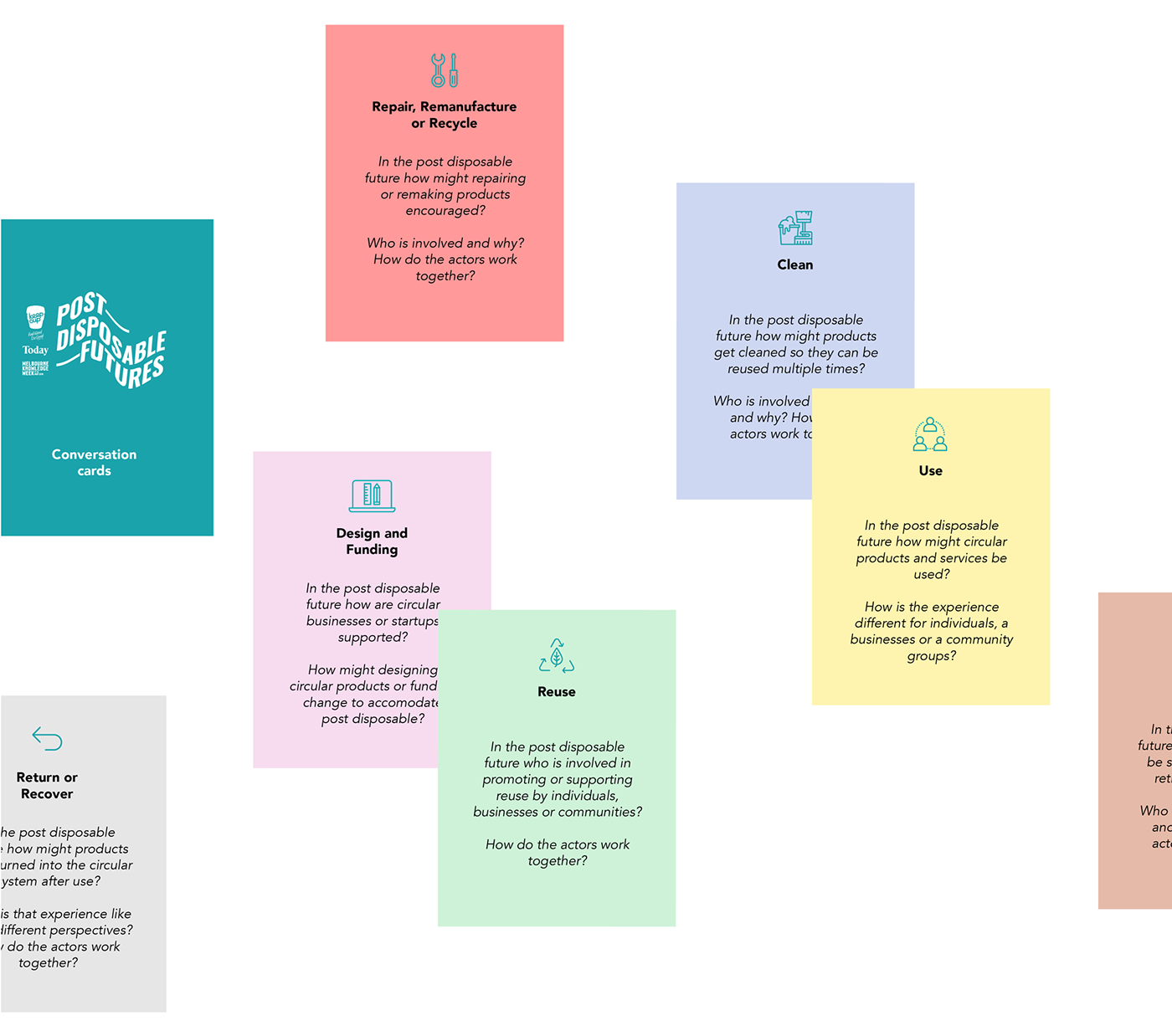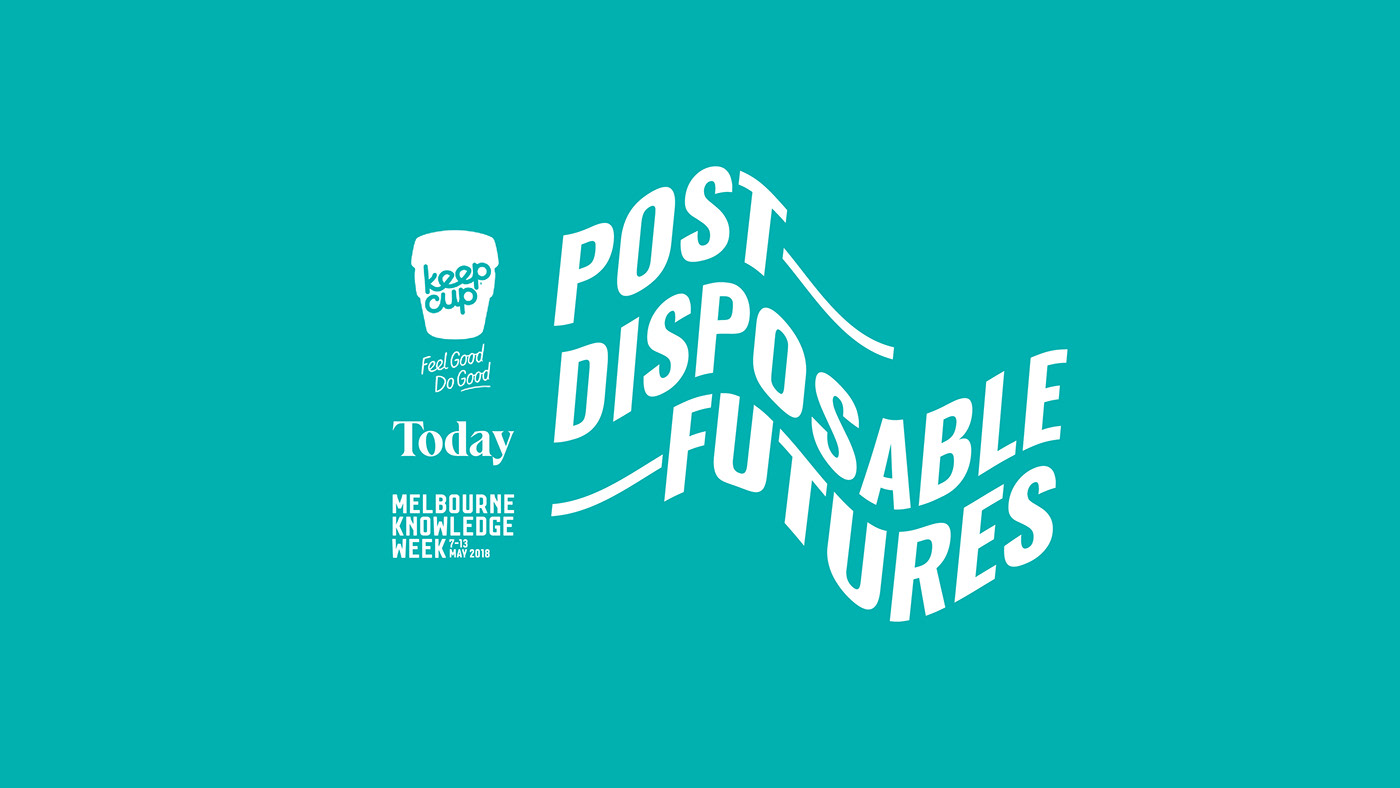
What is post disposable?
It’s not a word you often throw around in a casual conversation, so it was important for us to define what disposable meant. Examples of disposable products are all around us, from coffee cups to plastic straws and single use party products, they’ve been designed for convenience negating the detrimental impact on our environment.
The features we concentrated on for this project were that disposables were products designed for single use. Features include: low perceived value, cheap to produce and short-term convenience.
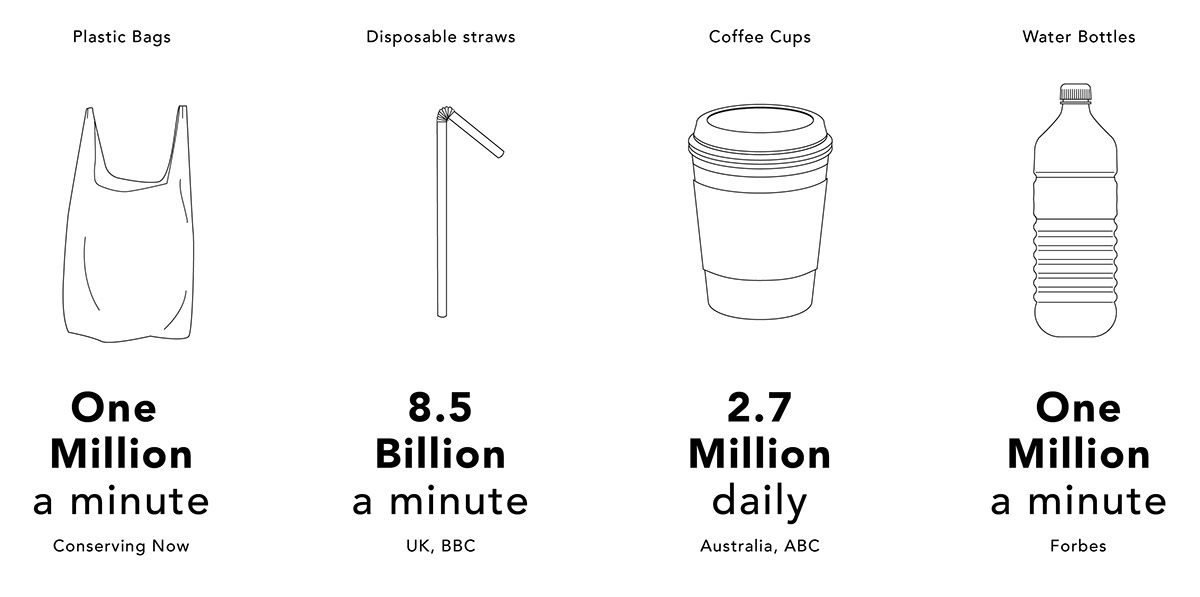
Some of the top single-use products (most end up in landfill or oceans)
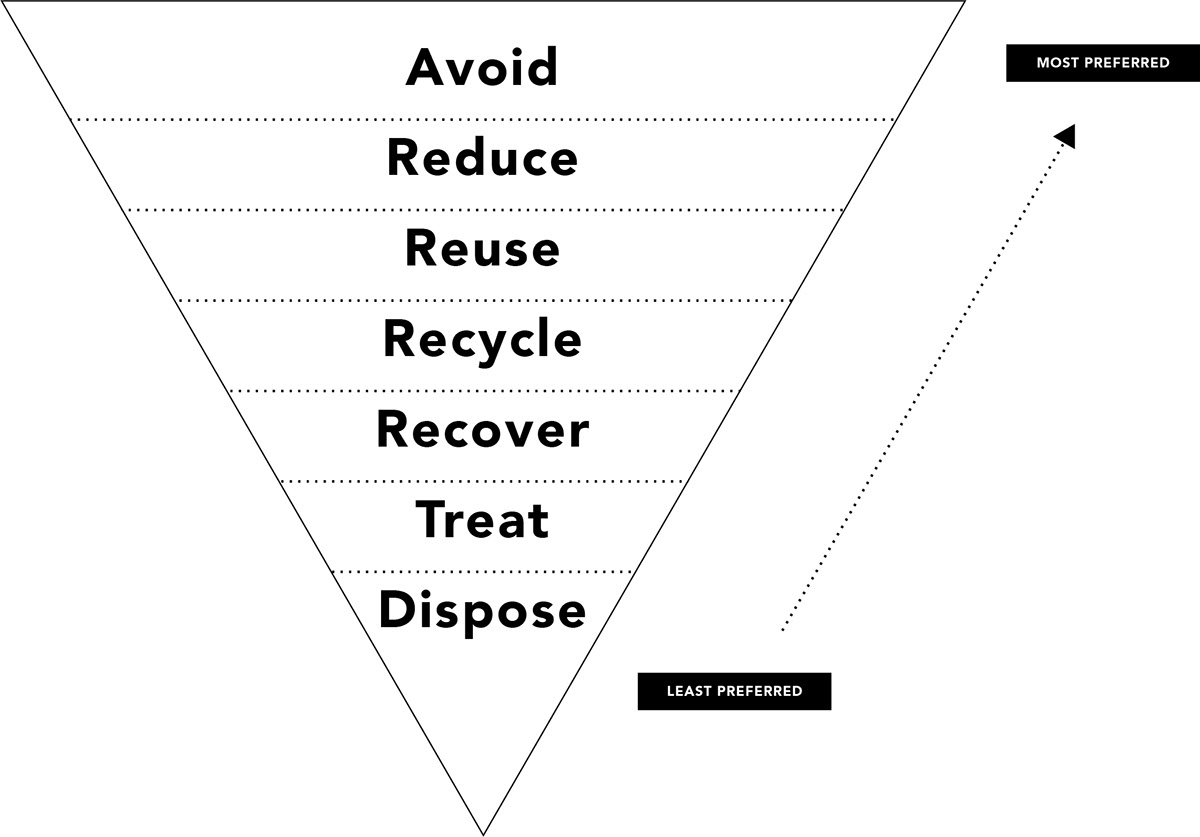
A representation of the Waste Management Hierarchy
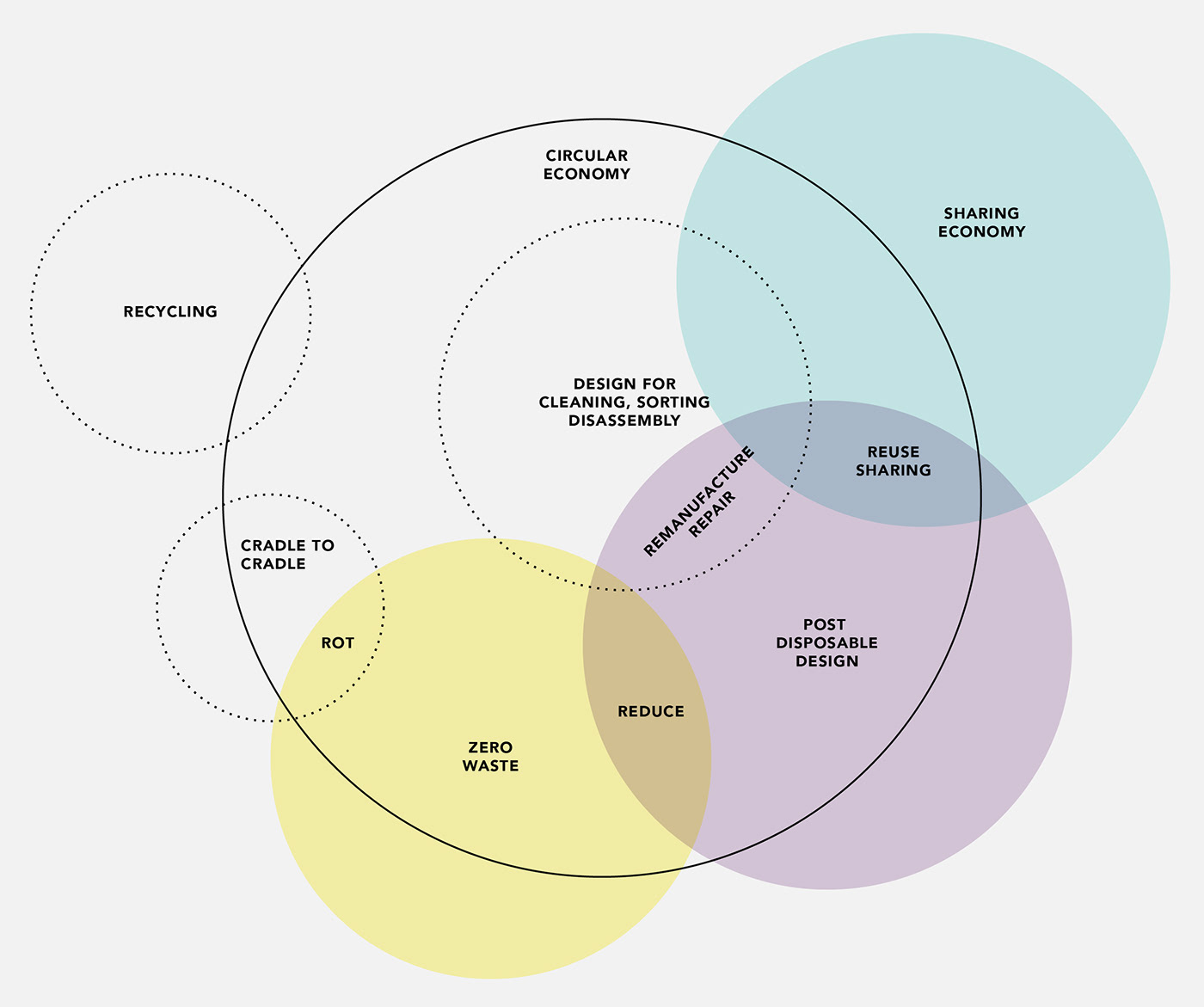
A very rough map of how some of the larger concepts relate to post disposable
Comparing linear, recycling and circular economies
At the moment much of our economy is ‘linear’ meaning that raw materials are used to make a product, and after its been used, any waste (e.g. packaging, or itself if single use) is thrown away. What is interesting about the linear economy is that value lies in selling and buying (consumption) with little or no value associated afterward, meaning there is insignificant economic value to retrieve or recycle at the end-of-lifecycle.

Linear economy
Recycling economy
In a recycling economy, some materials (if suitable are recovered, remanufactured) and are then reused. For example, waste glass is used to make new glass and waste paper is used to make new paper. At the moment the technology to identify materials, sort and recycle them is problematic. Not all materials can be recovered, especially at the rate we are producing new “waste”.
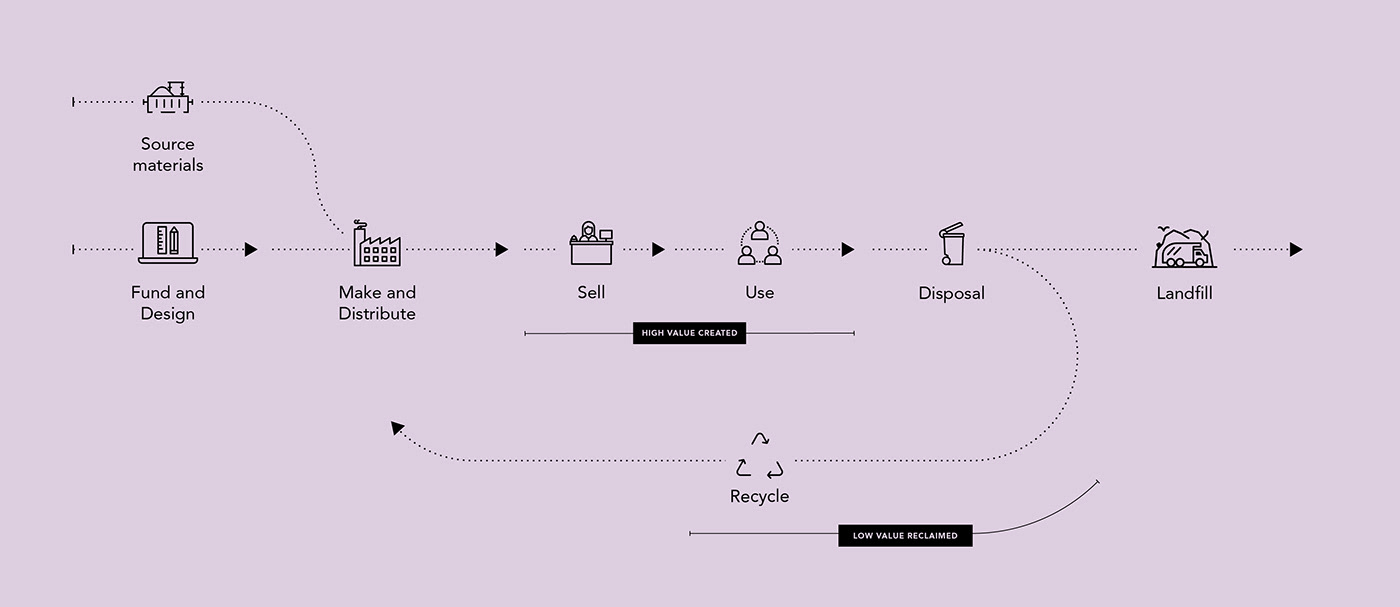
Recycling economy
Circular economy
Many parts of Europe are already experimenting and exploring circular economies. Running on the circular economy model means preventing waste by a making products and materials more efficiently and reusing them for as long as possible. If new raw materials are needed, they must be obtained sustainably so that the natural and human environment is not damaged.
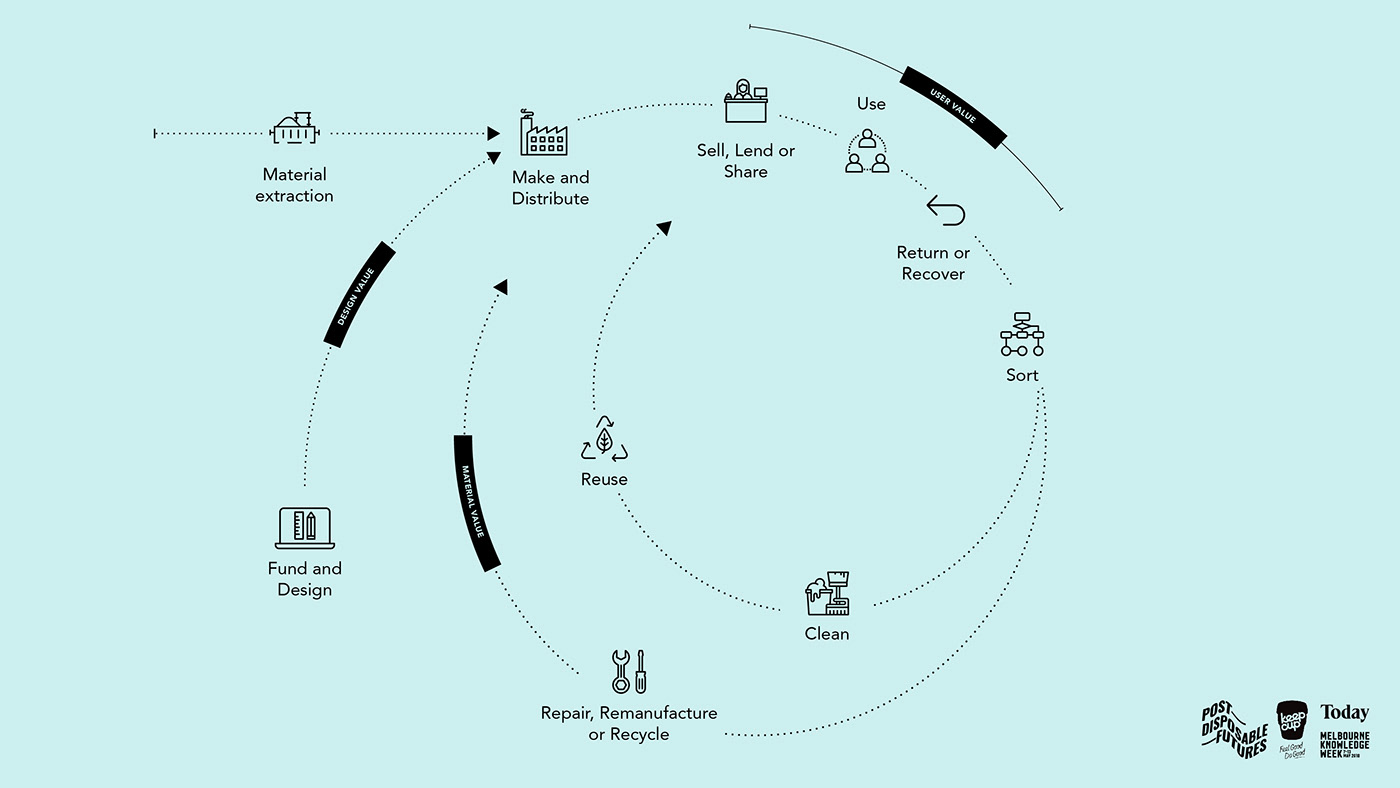
Circular economy






Exploring post disposable futures
Last week Today partnered with KeepCup for Melbourne Knowledge Week (From the Ground Up — An exploration of Food, Hospitality and Tech in Melbourne) to run a fast paced workshop on the topic of post disposable futures. Our goal was to start an important conversation around Melbourne’s future waste plan.
In this mini series we introduce the linear, recycling and circular economies and explore what it means to be post disposable. We also share our learnings and activities from the workshop so you can start the conversation within your community or city.
